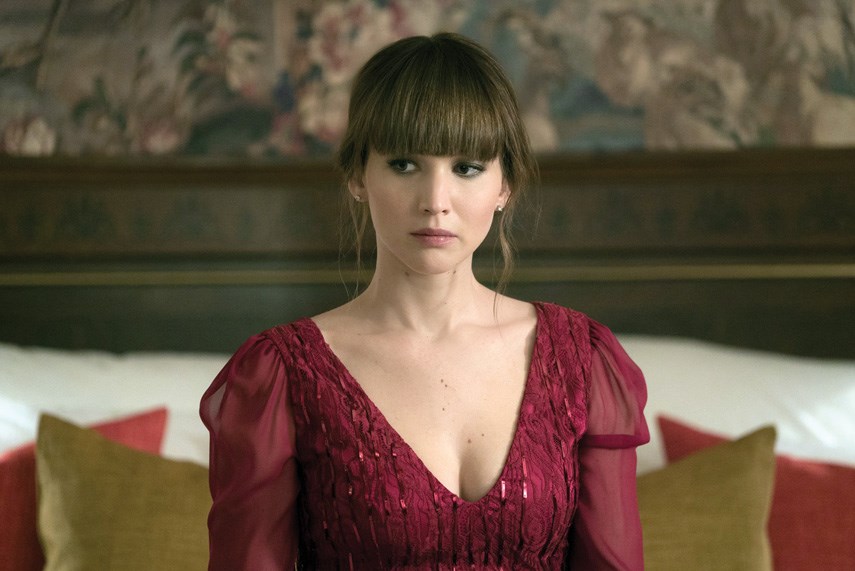Red Sparrow. Directed by Francis Lawrence. Starring Jennifer Lawrence and Joel Edgerton. Rating: 5 (out of 10).
There’s a fine line between empowerment and exploitation, and Hollywood likes to rub the line out and move it every chance it gets.
How else to get actresses – let’s face it, almost always – to strip bare in front of cast, crew and the world. (It’s for their craft.) How about violence, sexual violence, humiliation? (It’s in the service of the story.) How about an extended flaying scene? (It’s OK for House Bolton on TV’s Game of Thrones, might as well stretch it out for a feature film.)
See how that line keeps moving?
Jennifer Lawrence has gone on the record saying that she felt empowered by her nude scenes in Red Sparrow, in contrast to feeling violated after a phone hack unearthed nude photos of the actress unintended for public consumption. Fair enough.
But just because Lawrence’s character gets some very bloody opportunities for payback it doesn’t balance out the numerous and prolonged scenes of degradation and torture, which, frankly, are unessential to the plot and left me feeling a little sadder than when I walked in.
Lawrence plays Dominika, a ballerina with the Bolshoi whose career is cut short after a supposed accident. Dominika has a sick mother (Joely Richardson) to take care of but her uncle (Matthias Schoenaerts), a high-ranking intelligence official, swoops in with a plan that will help Dominika pay the bills. Too bad that plan includes a stint at a government-run “whore school,” where a matron played by Charlotte Rampling strips students – the women are known as “sparrows” – of both clothes and dignity with all sorts of queasy abasement techniques.
Her prime mission upon leaving is to cozy up to American CIA operative Nate Nash (Joel Edgerton) and ferret out his mole within the new-era version of the KGB. She funnels intel back to her comrades while considering flipping and working with Nate. “Work with me and make these men pay,” Nash promises, taking the Western moral high ground.
We’re mad at the Russians for interfering in U.S. elections, but is that any reason to inflict half-baked Red Square accents on them? When you start eye-rolling at, among others, the very talented Jeremy Irons, it’s time to cast some native speakers. And the Cold War stereotypes reflect badly on us, not them.
The highlight by far is Mary Louise Parker’s turn as a soused senator’s aide peddling government secrets. Never mind that her secrets are on floppy disks (what is this, WarGames?), we’re just happy to watch Parker’s character boozily berate a lethal henchman, delighted that the movie stopped taking itself so seriously for a few minutes.
There are plot twists aplenty, at least one too many, and the relationship between Dominika and Nate never feels genuine, even on a double-double-crossing level. Lawrence, partnering with director Francis Lawrence of the three Hunger Games sequels (and no relation), has more severe wigs than a ma-troschka has dolls, and is often just as wooden. After the Motherland breaks all her humanity, Lawrence’s character and performance are lost.
“Your only problem is, you have a soul,” says Jeremy Irons’ character. Would that Red Sparrow had done the same.



